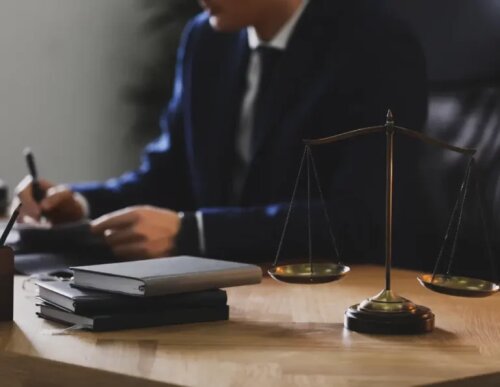Best Commercial Litigation Lawyers in Charlotte
Share your needs with us, get contacted by law firms.
Free. Takes 2 min.
List of the best lawyers in Charlotte, United States
About Commercial Litigation Law in Charlotte, United States
Commercial litigation refers to the process of resolving business disputes through the court system. In Charlotte, United States, this area of law encompasses a wide range of business-related conflicts, such as breach of contract, partnership disagreements, business torts, fraud claims, and issues related to commercial real estate. Charlotte, as a major financial and business hub in North Carolina, sees a significant volume of commercial disputes, making commercial litigation a common and essential service for local businesses and entrepreneurs. Professional commercial litigators in Charlotte are skilled in both negotiating settlements and representing clients in court trials when out-of-court solutions are not feasible.
Why You May Need a Lawyer
Engaging a lawyer experienced in commercial litigation can be crucial when facing certain business disputes. Common situations where legal help may be needed include:
- Breach of contract by partners, suppliers, or clients
- Disputes between business partners or shareholders
- Claims involving business fraud or misrepresentation
- Collections of outstanding business debts
- Intellectual property, trade secrets, or trademark disputes
- Employment-related disagreements, such as wrongful termination or non-compete violations
- Commercial real estate disagreements, such as leasing or property disputes
- Matters involving unfair or deceptive trade practices
A lawyer can help assess the merits of your case, develop effective legal strategies, negotiate settlements, and litigate in court if necessary. Legal representation helps minimize business risks and protect your financial interests.
Local Laws Overview
Charlotte commercial litigation is governed by both North Carolina state laws and federal laws, depending on the nature of the dispute. Commercial cases in Charlotte are typically heard in Mecklenburg County courts or federal district courts for the Western District of North Carolina. Some key aspects of local commercial litigation law include:
- North Carolina's Uniform Commercial Code (UCC), which regulates sales of goods, secured transactions, and negotiable instruments
- State statutes covering business organizations, including corporations, LLCs, and partnerships
- The North Carolina Unfair and Deceptive Trade Practices Act, protecting businesses and consumers from unfair business conduct
- The North Carolina Business Court, a special forum for complex business and commercial disputes
- Procedural rules specific to North Carolina civil courts, including requirements for filing and responding to lawsuits
- State and federal employment and contract law, as applied to business relationships
- Alternative dispute resolution practices, such as mediation and arbitration, which are often encouraged or required before trial
Frequently Asked Questions
What is commercial litigation?
Commercial litigation is the process of resolving disputes arising from business and commercial relationships, such as breaches of contract or partnership disagreements, through negotiation, mediation, arbitration, or court proceedings.
What types of cases fall under commercial litigation in Charlotte?
Typical cases include contract disputes, partnership or shareholder conflicts, business torts, franchise disputes, real estate litigation, intellectual property disputes, and claims under the Unfair and Deceptive Trade Practices Act.
What courts handle commercial litigation cases in Charlotte?
Most commercial litigation cases in Charlotte are heard in the Mecklenburg County Superior or District Courts. Complex business cases may be assigned to the North Carolina Business Court. Federal commercial matters are heard in the Western District of North Carolina.
How long does commercial litigation take in Charlotte?
The duration varies widely depending on the complexity of the case. Some disputes may resolve in a few months through settlement or mediation, while others may take a year or longer if a full trial is required.
Do I have to go to court for commercial disputes?
Not always. Many commercial disputes are resolved through negotiation, mediation, or arbitration, which can avoid the time and cost of a court trial. However, some cases do go to court if a settlement cannot be reached.
What is the North Carolina Business Court?
The North Carolina Business Court is a specialized court that handles complex business and commercial cases. It offers judges with expertise in business law and efficient management of complex litigation.
How much does commercial litigation cost?
Costs vary based on the complexity of the dispute, the amount at stake, and the length of the legal process. Fees can include attorney fees, court costs, expert witness fees, and other litigation expenses. Many lawyers offer consultations to discuss expected costs.
What should I bring to my first meeting with a commercial litigation attorney?
You should bring all relevant documents, such as contracts, emails or correspondence relating to the dispute, records of communications, financial statements, and any previous legal documents or court notices.
Can a business seek damages for losses in commercial litigation?
Yes, a business can seek compensation for financial losses, lost profits, or other damages resulting from breaches of contract, fraud, or other wrongful acts. The availability and amount of damages depend on the facts and applicable law.
What if my business is sued in Charlotte and does not respond?
If a business is sued and fails to respond, the court may enter a default judgment against it, potentially resulting in a legal obligation to pay damages or comply with other court orders. It is crucial to respond promptly to any lawsuit.
Additional Resources
If you need more information or support regarding commercial litigation in Charlotte, consider reaching out to the following organizations:
- North Carolina Business Court - for information on complex business case procedures
- Mecklenburg County Clerk of Superior Court - for filing guidance or accessing court records
- North Carolina Bar Association - for lawyer referrals and legal education
- Charlotte Center for Legal Advocacy - supporting low income and small business clients
- Small Business Administration, North Carolina District Office - for resources for local small businesses
- Legal Aid of North Carolina - limited services for business disputes for eligible individuals
Next Steps
If you believe you need legal assistance in commercial litigation in Charlotte, start by organizing all documentation related to your dispute. Research and contact a qualified commercial litigation attorney familiar with North Carolina business law. Most attorneys offer initial consultations, which can help you understand your case, potential risks, and available strategies. Acting promptly improves the chances of a favorable outcome and helps protect your business interests.
Consider contacting the North Carolina Bar Association or searching for local law firms that handle commercial litigation cases. Be prepared to discuss your situation openly and ask about fees, experience, and possible solutions to your legal issue. Legal guidance is vital to navigate the complexities of commercial disputes effectively.
Lawzana helps you find the best lawyers and law firms in Charlotte through a curated and pre-screened list of qualified legal professionals. Our platform offers rankings and detailed profiles of attorneys and law firms, allowing you to compare based on practice areas, including Commercial Litigation, experience, and client feedback.
Each profile includes a description of the firm's areas of practice, client reviews, team members and partners, year of establishment, spoken languages, office locations, contact information, social media presence, and any published articles or resources. Most firms on our platform speak English and are experienced in both local and international legal matters.
Get a quote from top-rated law firms in Charlotte, United States — quickly, securely, and without unnecessary hassle.
Disclaimer:
The information provided on this page is for general informational purposes only and does not constitute legal advice. While we strive to ensure the accuracy and relevance of the content, legal information may change over time, and interpretations of the law can vary. You should always consult with a qualified legal professional for advice specific to your situation.
We disclaim all liability for actions taken or not taken based on the content of this page. If you believe any information is incorrect or outdated, please contact us, and we will review and update it where appropriate.












